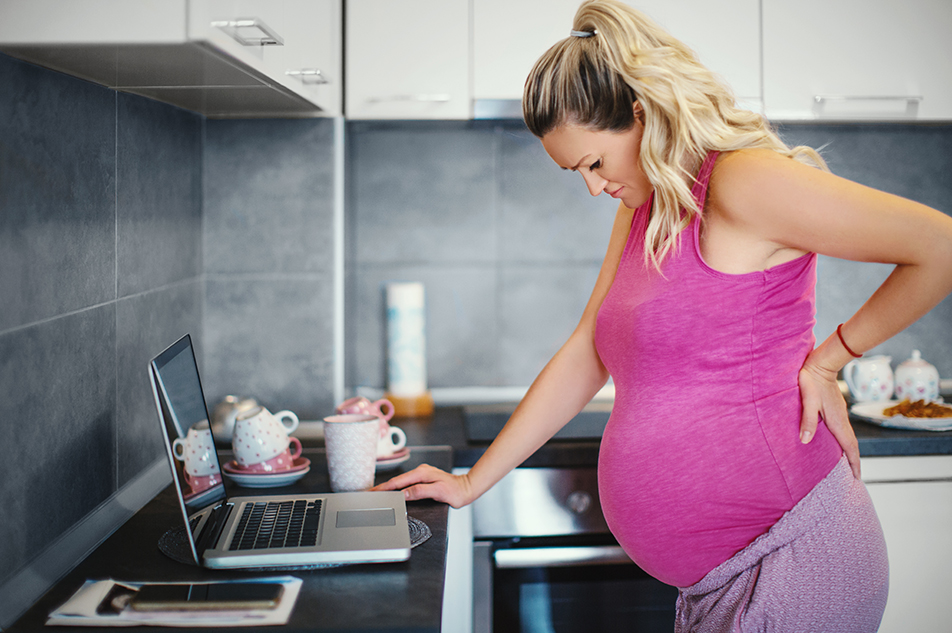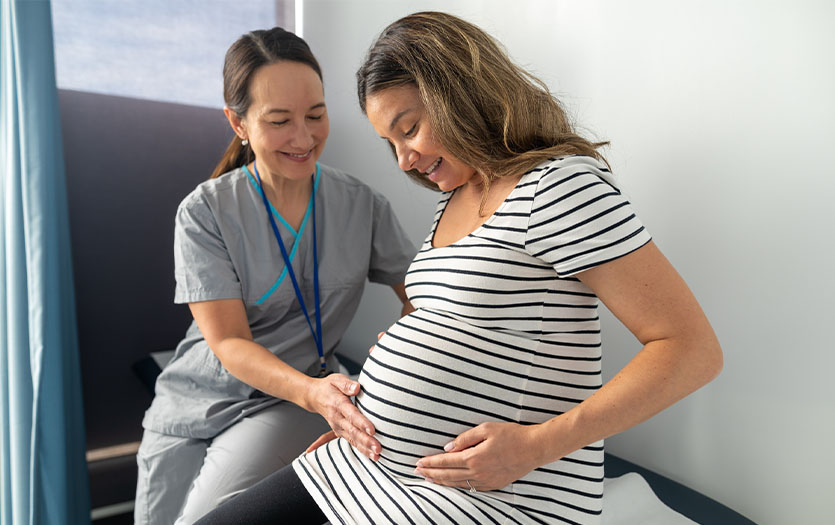
This post was written by Kelly Horn, CNM, Parkview Health.
During the third trimester of pregnancy, a woman’s body changes to accommodate and support their growing baby. While this is necessary for little one’s development, it can cause some very uncomfortable side effects. Here, we look at four of the most common complaints we hear about during that final stretch and offer some solutions that just might deliver a little relief.
Heartburn
Heartburn, reflux and indigestion later in pregnancy are commonly caused by pressure on the intestines and stomach from the growing baby, although these can happen at any time. Here are some things to try:
- Eat smaller meals more often
- Avoid eating spicy or fatty foods, or drinking coffee, as all of these can irritate the stomach
- Use pillows to raise your head and shoulders when lying down or sleeping
- Try drinking milk or eating bland foods, which might reduce or calm the stomach acid
- Some antacids may be helpful, but talk to your midwife before you begin taking anything
Hemorrhoids
Hemorrhoids, which are swollen veins around the anus, are common in late pregnancy. They can burn, hurt or itch and can sometimes bleed. Avoiding constipation may help prevent or reduce hemorrhoids. Simple actions that can potentially help prevent constipation include:
- Drink plenty of fluids, but avoid tea, coffee and alcohol
- Eat high fiber foods, including lots of fruit, vegetables and wholegrain breads
- Keep active with regular exercise
Varicose veins
Varicose veins are another common discomfort that can affect the legs during pregnancy. This occurs due to increased pressure and blood volume. There is no immediate treatment for this condition during pregnancy, but there are some things you can try for relief, including:
- Take time to rest and put your feet and legs up
- Try to get in regular, gentle exercise to assist with blood circulation
- Use compression stockings on your legs to relieve the symptoms
Backache
Persistent or intermittent back pain is another common experience for pregnant women. Most pregnancy backaches are caused by a combination of the extra weight you are carrying, your altered way of standing and walking and the softening of the ligaments around your back, which can allow things to move more freely than usual.
The following tips may help provide some comfort:
- Light exercise, such as walking or yoga
- Avoid sitting or standing for long periods of time
- Avoid heavy lifting and use good body mechanics
- If you must sit for long periods of time, support your lower back with a cushion
- Try exercising in water
- Pregnancy massage or physical therapy
Talk to your midwife or care provider about these conditions or any discomfort you are experiencing so that they can offer support and potential solutions.



